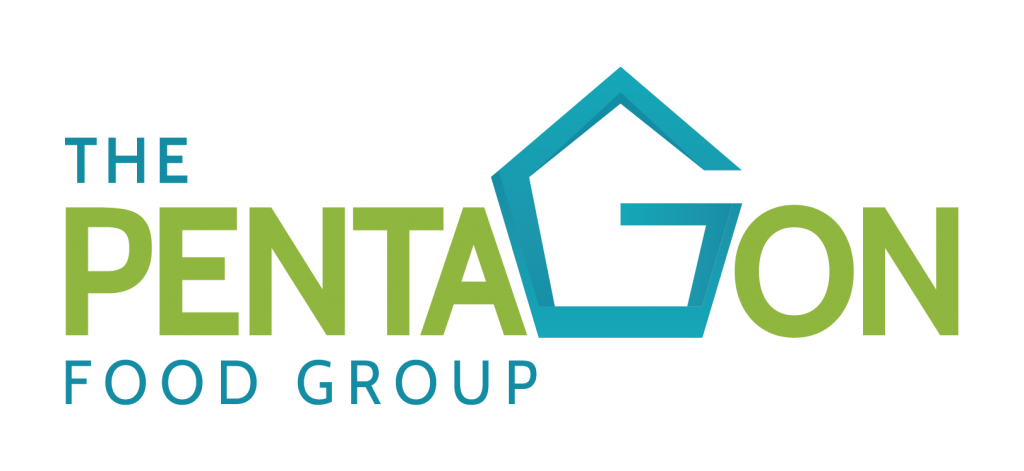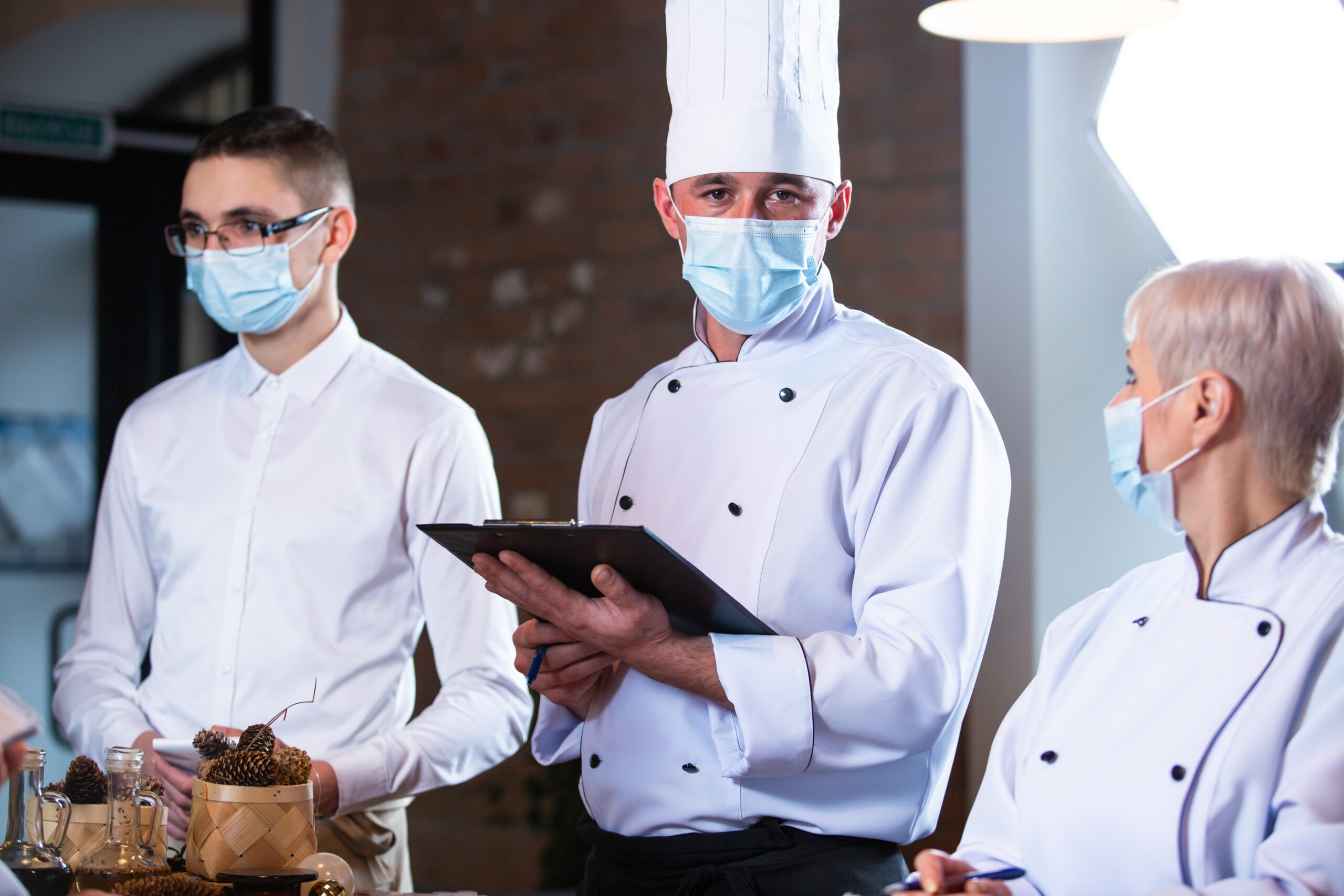In 2025, the restaurant industry continues to prioritize health and safety like never before. With diners increasingly conscious of hygiene standards and regulatory bodies tightening compliance requirements, having a robust health and safety checklist is non-negotiable for restaurants.
Whether you’re a new eatery or a seasoned establishment, this guide outlines the latest health and safety rules for restaurants and provides a comprehensive health and safety restaurant checklist to keep your kitchen compliant, your staff empowered, and your customers confident.
Why Health and Safety Matter in 2025
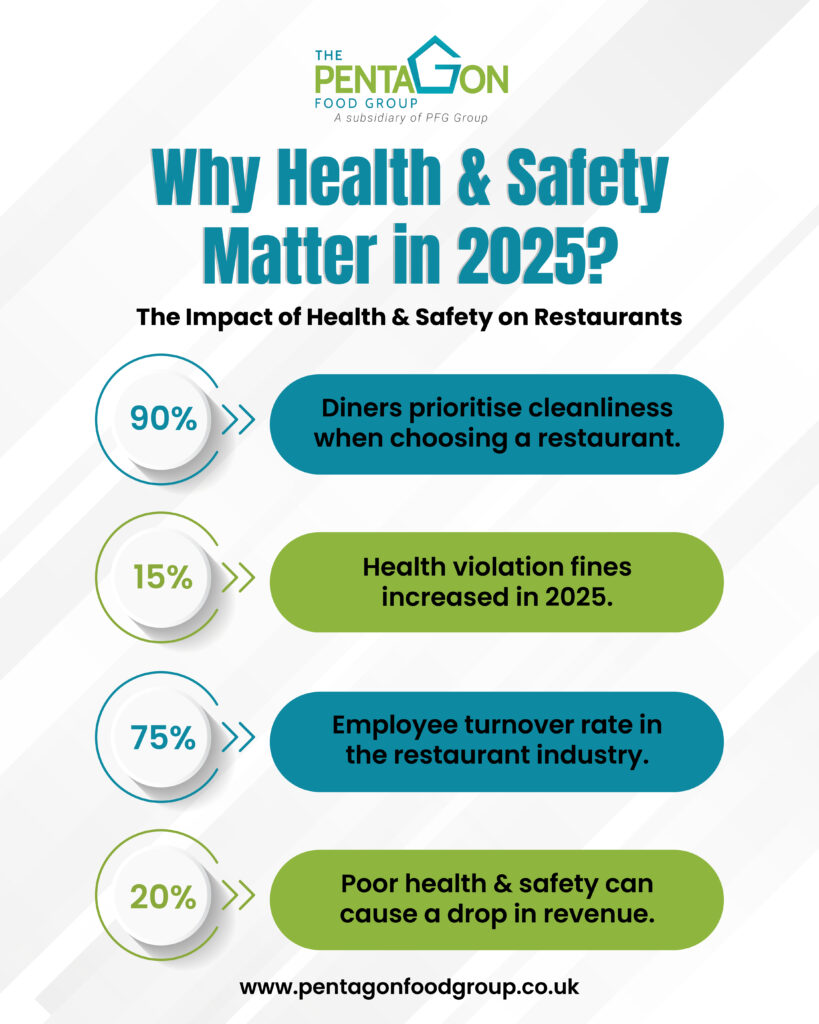
- Customer Trust: 90% of diners say cleanliness and safety are their top priorities when choosing a restaurant (National Restaurant Association, 2025).
- Legal Compliance: Fines for health violations have increased by 15% in 2025, making compliance more critical than ever.
- Employee Retention: A safe workplace reduces turnover rates, which are currently at 75% in the restaurant industry (NRA, 2025).
- Reputation Management: Online reviews mentioning health and safety issues can lead to a 20% drop in revenue (BrightLocal, 2025).
Maintaining Comprehensive Records
Proper record-keeping is the backbone of an effective health and safety restaurant checklist. Records provide proof of compliance and help you track potential risks.
- Workplace Inspections and Deliveries: Keep a detailed log of workplace inspections. Document when food deliveries arrive and check their condition. For instance, when receiving a batch of chilled chicken, ensure it arrives at the correct temperature (below 5°C).
- Labelling and Stock Rotation: Label all food items with clear expiry dates. Implement a first-in, first-out (FIFO) system to avoid wastage and maintain freshness. For example, place older stock of vegetables in front so they’re used first.
- Cooking and Reheating Temperatures: Keep a record of cooking and reheating temperatures. Foods like chicken should always be cooked to at least 75°C. Use food thermometers to check and document these temperatures daily.
Pro Tip: Use digital apps to manage records efficiently, reducing the risk of human error.
Adhering to Food Hygiene Regulations
Food hygiene is a legal and moral obligation for every restaurant. The UK enforces strict health and safety rules for restaurants, and non-compliance can lead to fines or closure.
- Certifications for Staff: Ensure that all food-handling staff have a Level 2 Food Hygiene Certificate or equivalent. This training teaches them how to handle food safely.
- Employer Responsibility: As an employer, it’s your duty to provide ongoing training. Combine formal certifications with practical, on-the-job instruction. For example, train your staff on how to properly store raw meat separate from ready-to-eat items.
- Public Liability Insurance: Protect your restaurant from unexpected incidents like customer allergies or slips by having public liability insurance. This shows your commitment to safety and professionalism.
Regular Inspection of Equipment and Work Surfaces
Clean equipment and sanitised surfaces are vital to preventing foodborne illnesses. A well-maintained kitchen reduces risks and ensures compliance with health and safety restaurant checklists.
- Sanitising Work Surfaces: Always sanitise worktops after preparing raw meat to avoid cross-contamination. Use separate cleaning cloths for different areas, like counters and dining tables.
- Colour-Coded Chopping Boards: Invest in colour-coded chopping boards to avoid cross-contamination:
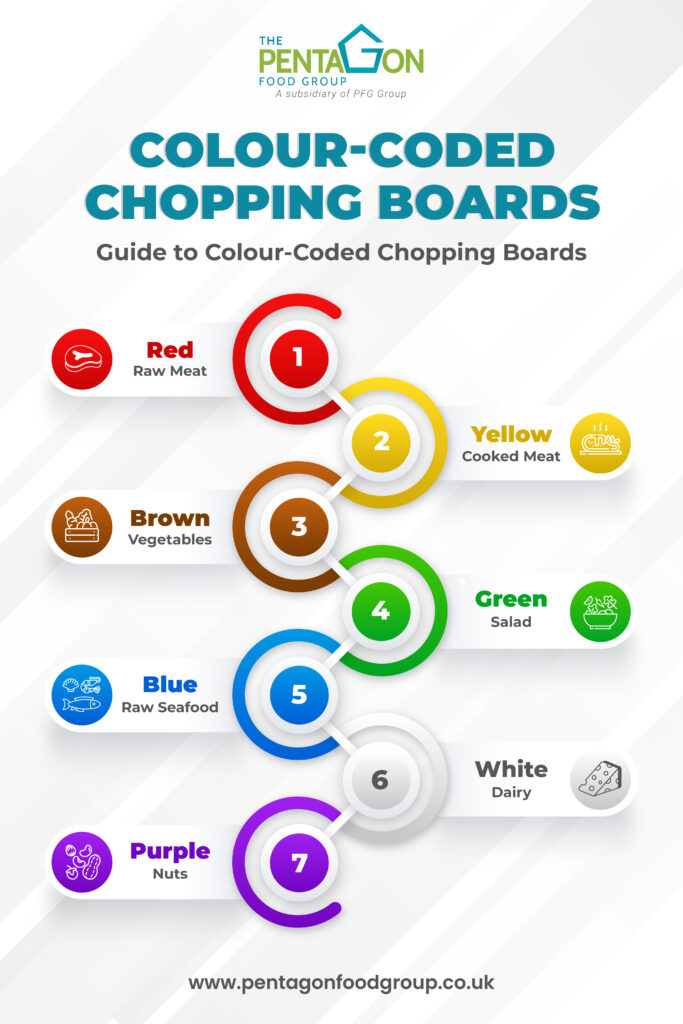
- Red: Raw meat
- Yellow: Cooked meat
- Brown: Vegetables
- Green: Salad
- Blue: Raw seafood
- White: Dairy
- Purple: Nuts
For example, if you’re cutting raw chicken on a red board, never use it for chopping vegetables. Always clean and store chopping boards properly after each use.
- Avoid Metallic Surfaces: Do not prepare acidic foods like citrus or tomatoes on metallic surfaces, as this can alter the taste and compromise safety.
Sample Daily Health and Safety Checklist
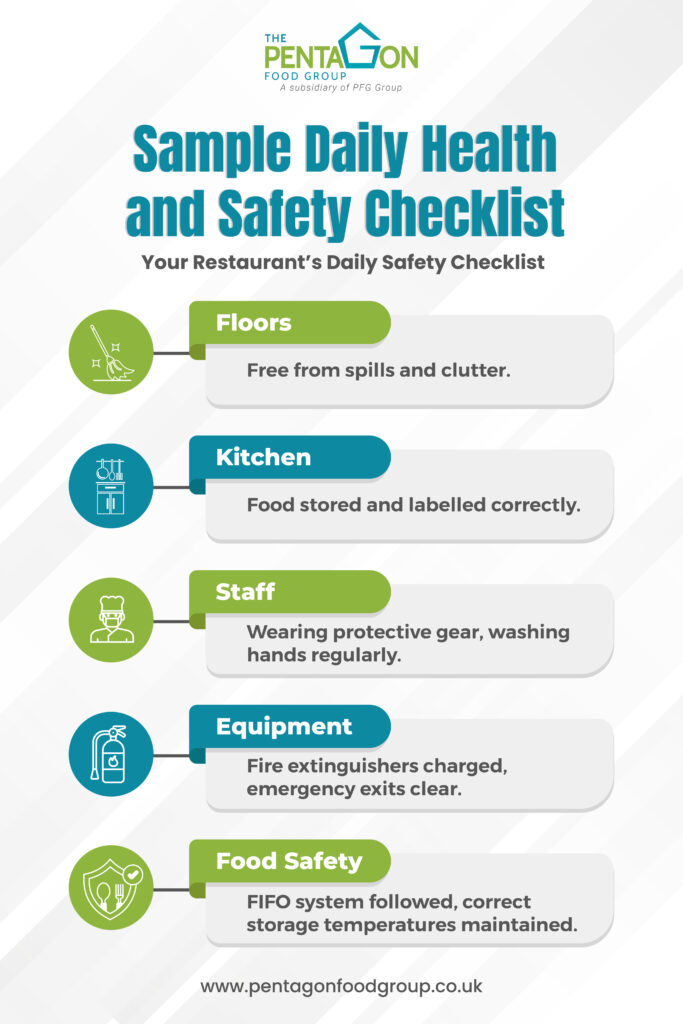
Below is a practical health and safety checklist for restaurants to ensure compliance.
General Safety Measures
| Inspection Item | Yes | No | N/A |
| Floors are free from spills, wet spots, grease, and debris | |||
| Non-slip floor mats are in place | |||
| Wet floor signs are posted when necessary | |||
| Anti-slip shoes are worn by employees | |||
| Stairs are free of clutter and storage | |||
| Cords to computers and electronic equipment are secured to prevent trips/falls | |||
| Adequate lighting and ventilation in all areas | |||
| Heavy objects are stored properly on lower shelves | |||
| Furniture and fixtures are in good repair |
Fire & Emergency Preparedness
| Inspection Item | Yes | No | N/A |
| Fire extinguishers are fully charged and accessible | |||
| First aid kit is adequately stocked and accessible to employees | |||
| Emergency door release or ax is available in freezer |
Food Handling & Storage
| Inspection Item | Yes | No | N/A |
| Food storage areas are clean and well-organised | |||
| All food items are labelled with expiry dates | |||
| Raw foods are stored separately from cooked foods | |||
| Refrigerators and freezers are maintained at correct temperatures | |||
| FIFO (First In, First Out) system is followed | |||
| Knives and cutting tools are properly stored and kept sharp |
Equipment & Maintenance
| Inspection Item | Yes | No | N/A |
| Exhaust filters are clean and functional | |||
| Electrical appliances are in good working order | |||
| Material handling equipment is available | |||
| Ladder is available for reaching upper shelves | |||
| Ladder is in good working order (free of rust, damage to rungs, and feet) |
Staff Training & Hygiene
| Inspection Item | Yes | No | N/A |
| All employees are trained in their current position | |||
| Employees wear proper uniforms and protective gear | |||
| Handwashing stations are available and properly maintained | |||
| Eyewash station is flushed or bottled eyewash is available | |||
| Only authorised personnel use mixers, slicers, and power equipment |
Updated Health and Safety Rules for Restaurants in 2025
- Regulatory bodies now enforce stricter penalties for non-compliance. Key updates include:
- Zero-Contact Deliveries: Mandatory geo-tagged, temperature-controlled packaging for wholesale orders.
- Air Quality Standards: HVAC systems must filter 99.9% of airborne contaminants, per CDC 2025 guidelines.
- Waste Management: Compostable packaging and AI-driven waste tracking to reduce environmental health risks.
How Technology Elevates Your Health and Safety Checklist
From AI-driven compliance audits to smart gloves that monitor hand hygiene, tech is a game-changer. Cloud-based platforms like SafeDine 2025 auto-generate inspection reports, simplifying adherence to health and safety rules for restaurants.
Partner with a Trusted Food Wholesaler
Your health and safety checklist starts at the source. Reputable wholesalers ensure:
- Certified Suppliers: Ingredients meet FDA 2025 safety certifications.
- Tamper-Proof Packaging: Reduces contamination risks during transit.
- Real-Time Recall Alerts: Instant notifications about compromised products.
By choosing a wholesaler committed to these standards, you’re already ticking off key items on your health and safety restaurant checklist.
Read More: Steps to Make Your Restaurant More Sustainable
Conclusion: Safety is the Secret Ingredient
Maintaining high standards of health and safety rules for restaurants is not just about compliance; it’s about building trust with your customers and staff. Following a structured health and safety restaurant checklist can help ensure everyone’s safety while improving your restaurant’s reputation. Use this guide to implement effective practices and regularly review your processes to stay ahead.
By focusing on these steps, you’re not only protecting your business but also creating a dining environment that customers will appreciate and return to. Keep safety at the heart of your operations, and success will follow.
Ready to elevate your restaurant’s standards? Pentagon Food Group provides 2025-compliant ingredients and tools to simplify your health and safety rules for restaurants. Contact us today to build a safer, smarter kitchen.
